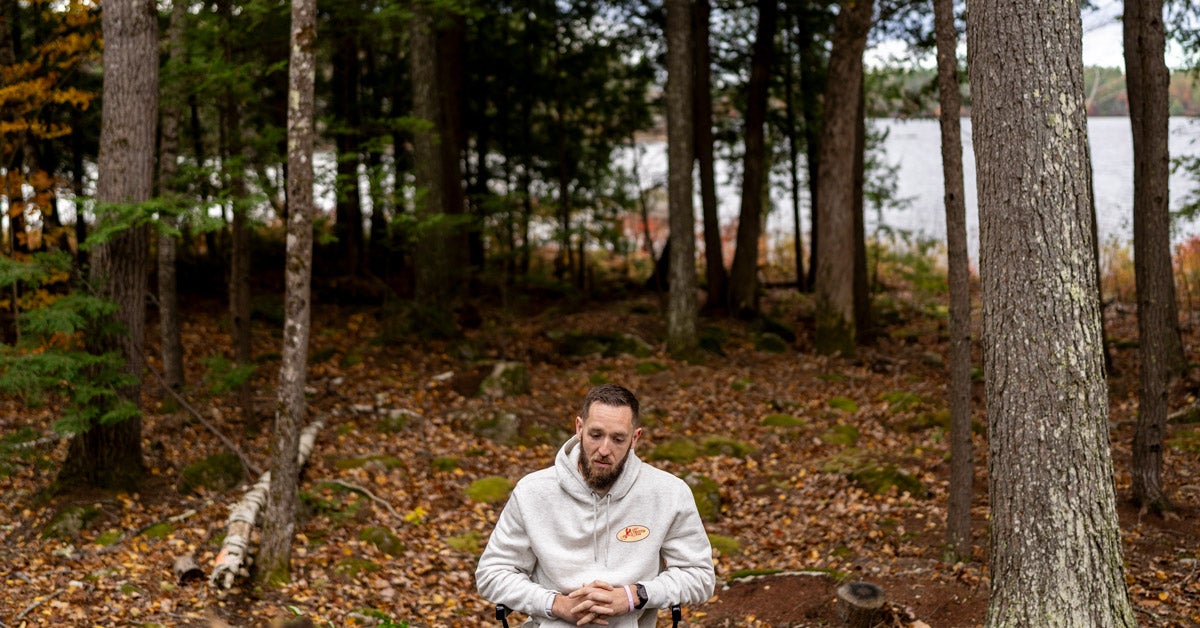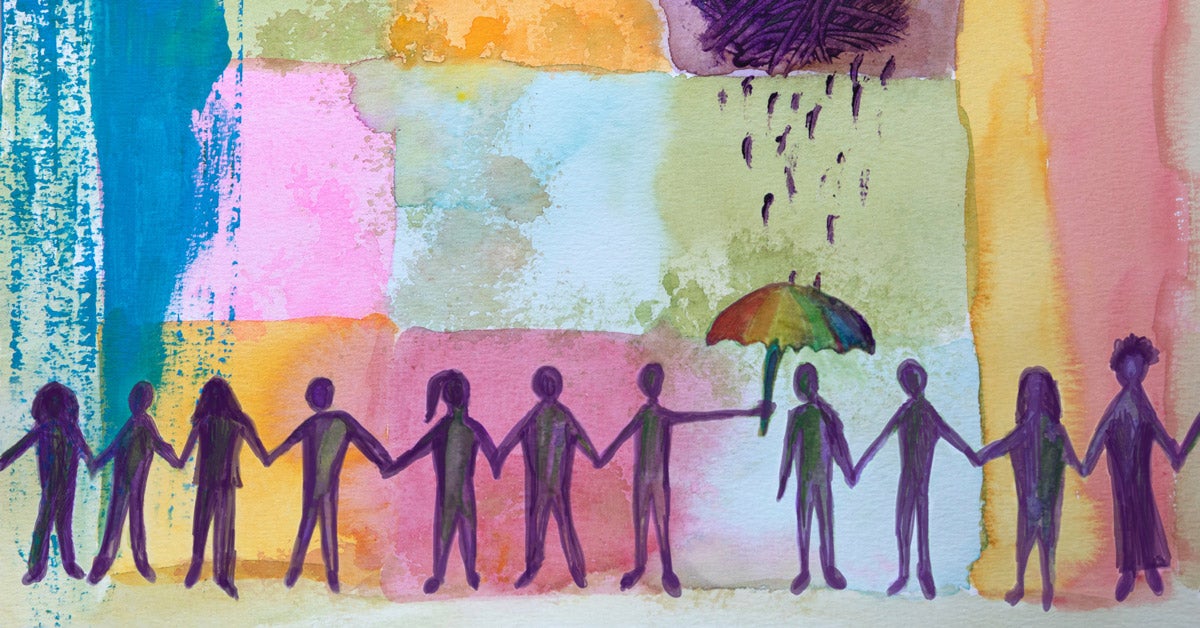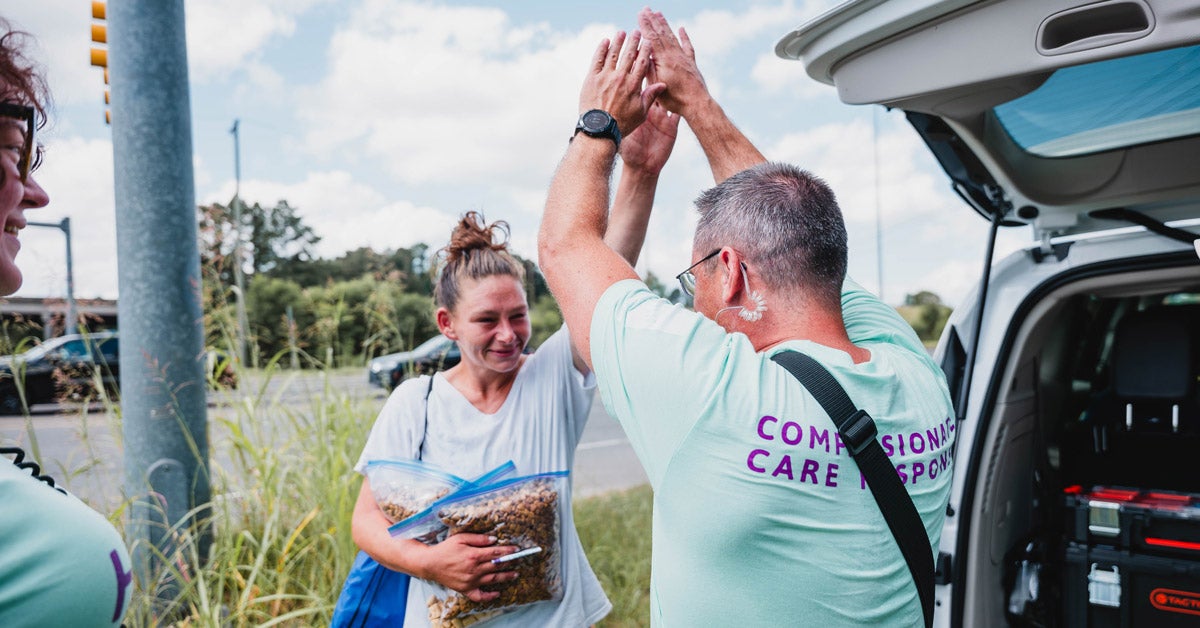Newsletter
HPH Weekly: “People forget about the fathers.”
This edition of Harvard Public Health Weekly was sent to our subscribers on November 21, 2024. If you don’t already receive the newsletter, subscribe here. To see more past newsletters, visit our archives.

“People forget about the fathers.”
Losing a child is one of the most painful events an adult can endure, experts say. For fathers, that grief is compounded by patriarchal expectations to bury or mask their feelings. That’s why groups like the Sad Dads Club are so important: They give men a much-needed space to be vulnerable, allowing healing to begin.

Is bereavement a public health crisis in the U.S.? This advocate thinks so.
Joyal Mulheron believes bereavement is “an invisible public health crisis.” She and her nonprofit Evermore are on a mission to get federal action on the issue. Key to her view of healing in the wake of loss: Americans need less technology, more face-to-face time.

To break cycles of trauma, we need family-friendly addiction treatment
Children who have at least one parent with opioid use disorder “are at increased risk for developmental disorders, behavioral issues, poor parental attachment, abuse and neglect, and substance use disorders,” writes Nisha Chandra. The fact that their parents are often forced to choose between treatment and child care doesn’t make things any easier, she argues.

Adding mental health workers to emergency response reduces violence
Jina Moore Ngarambe, HPH managing editor, talks to Tradeoffs podcast reporter Ryan Levi about his three-part series, “The Fifth Branch.” The series explores efforts to add mental health professionals to the 911 response in Durham, North Carolina, reducing both unnecessary force and police time spent on noncriminal activity.
Could the media stop avoiding public health, please?
With the election in the rearview mirror, Dick Tofel implores his fellow journalists to turn their attention to public health—and specifically, the lack of change in the field since the pandemic. We’re woefully unprepared for the next crisis, Tofel argues, and the media’s “news avoidance” is not helping.
Snapshot: Improving public health messaging on heat stroke
Nearly 19,000 people around the world die from excessive heat every year while they are on the job. Exertional heat stroke—different from classic heat stroke—is a pressing public health issue, especially as climate change increases the frequency and intensity of heat waves.
What we’re reading this week
Rising resistance threatens a key malaria drug →
Global Health NOW
How Republicans (sometimes) get on board with climate action →
Grist
What it means to be hungry in Gaza →
Al Jazeera
Scientists fear what’s next for public health if RFK Jr. is allowed to ‘go wild’ →
KFF Health News
Pharma’s influence on India’s global health engagement →
Think Global Health
Happy Thanksgiving, dear readers. We’re taking a break next week, but we’ll be back in your inboxes on December 5. See you then!
—Jo Zhou
P.S.: A quick correction. In my note at the end of last week’s newsletter, I said “the state” was deciding whether to renew North Carolina’s Healthy Opportunities Pilots. In fact, that decision lies with the Centers for Medicare & Medicaid Services. Apologies for the error!
